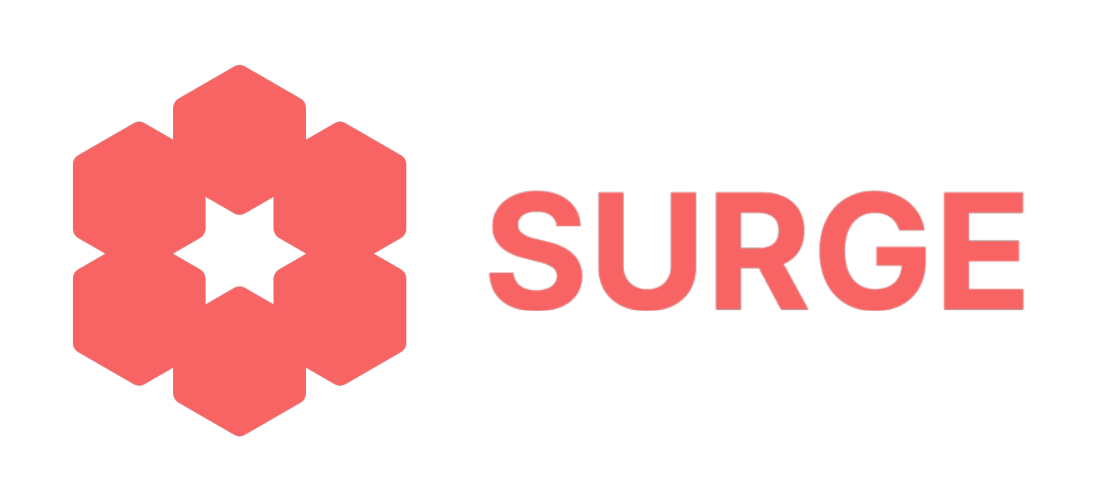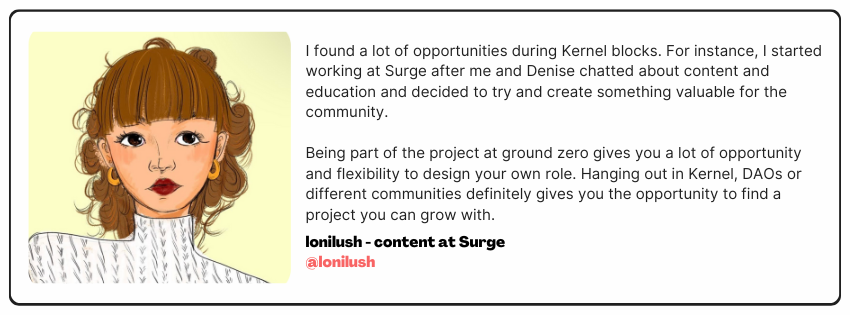Building a Reputation in Web3: The Key to Finding Your Next Crypto Job
Web3 aims to revolutionize the way we work and play online by providing a decentralized, open, and transparent environment. Based on blockchain technology, Web3 applications also allow users to own their data - including reputation.
Why does reputation matter?
Well, if you're interested in starting a career in Web3, your on-chain reputation is your biggest advantage.
What do we mean by that? Isn’t a great CV enough to get a job in crypto? How do you even build a Web3 reputation?
Let’s find out!
The Web3 Job Market: Breaking Away from Traditional Hiring Norms
In traditional job markets, you apply for positions matching your experience and undergo a series of interviews, often taking months.
In contrast, Web3 companies and startups are typically smaller, more agile, and prioritize cultural fit and passion. Web3's decentralized model also involves collaborative hiring decisions with input from community members and contributors who identify and propose candidates based on their participation and collaboration in the community.
Working in Web3 also gives you the freedom to design your ideal role and level of involvement. High-agency contributors who add concrete value to projects can advance within organizations or carve out new roles for themselves.
Things move faster in Web3: there’s a lot more room for experimenting. A genuine passion for crypto and an on-chain reputation that shows you can take initiative and add value will often put you ahead of candidates with traditional CVs and cover letters.
How to Build a Web3 Reputation
Your Web2 experience is certainly valuable - a lot of the skills are transferable. But, if you want to gain an advantage in the Web3 market, you will need to have the experiences that Web3 organizations are looking for.
So, how to go about building your Web3 reputation if you’re new to crypto?
1. Have an active Twitter presence
Crypto Twitter is where everything in Web3 goes down. You can chat with core contributors of major protocols, learn through threads, and find job opportunities before they get posted on any job boards.
Plus, you can use Twitter to demonstrate your knowledge and produce valuable content that will get you noticed.
2. Join Discord communities
Being a part of a value-aligned community is priceless. Communities like Surge often have job boards where you can contact hiring managers directly or find co-founders and collaborators. Hanging out in Discord is also a great way to meet people and build connections.
3. Contribute to a DAO
If you can write, design, or code, there’s a DAO out there that could use your help. Find a DAO that aligns with your interests, do hackathons, look for bounties, or simply tag a team member and ask how you can help.
Some DAOs look for volunteers (if you’re new, that’s a great way to get started) and many reward their contributors with their tokens.
4. Collect POAPs and NFTs
POAP (Proof of Attendance Protocol) is an NFT that you get when you participate in events, courses, cohorts, etc. While POAPs aren’t typically valuable on a secondary market, they’re a great way to demonstrate your involvement in the Web3 community.
For example, you could get a POAP when you complete the Surge course, demonstrating your knowledge. You can get a POAP as a Kernel fellow. You could also get a POAP when you donate to certain causes or attend online or IRL events.
5. Go to crypto conferences
Web3 action primarily happens online and you can still build a career and reputation even if you don’t go to IRL events. However, going to crypto conferences like ETHDenver or NFT.NYC is a great way to put a PFP to a face and strengthen your relationships within the community.
During the conferences, you can also apply to stay at builders’ houses. For example, Talent Protocol organizes Talent Houses where high-potential builders can attend their first Web3 hackathon or conference with expenses covered. Keep an eye out here and apply for the next Talent House!
6. Learn as much as you can
In Web3, you’re not expected to know every single thing about blockchains or NFTs. Everyone is still figuring it out! But, you are expected to have a passion for learning! Everyone in the community is constantly keeping up with new tech, products, or protocols, so having the ability to dive deep, learn quickly, and do your own research is crucial.
7. Find your own way to contribute
The great thing about Web3 is that you get to chart your own journey. You can contribute to Web3's growth and development by sharing your skills, knowledge, and resources. Find your passion and go for it. There’s a project you like but you’re not sure how to get your foot in the door? Find their GitHub and solve an issue.
You want to get started as a writer but everyone is looking for published works? Offer to write a free article or a Twitter thread for your favorite project. You’ll get your name out there, get noticed, and make great connections in the process.
ACTION ITEMS
Follow Vitalik Buterin, nader, or Laura Shin to get started on Twitter. Of course, don’t forget your favorite protocols and DAOs or educational and media accounts like Surge, Bankless, or 6529.
Find a favorite community and join their Discord. We love hanging out in Surge, BoysClub, or BFF Discords.
Check out this guide on finding a DAO to join. We love Developer DAO, H.E.R. DAO, or Cabin.
Learn crypto terminology and slang or go a step further and learn about blockchain fundamentals.
Want to get involved as a developer? Check out this article.
Looking for a non-tech role in Web3? This is the guide for you.
How to Showcase Your Web3 Experience to Find a Job in Crypto
Traditional platforms like LinkedIn are not ideal venues for crypto-natives looking for work. Hanging out on Twitter, in Discords, or joining job boards could mean you’re the first to see a new opportunity.
Additionally, LinkedIn and traditional CVs are tailored to a job path that doesn’t necessarily correspond to the way things work in Web3. You need a more flexible, open, and cohesive platform if you want your Web3 experience to come across in the best way.
For example, Talent Protocol is a platform that allows you to bring together all your activities and credentials, and showcase them within one profile. Plus, you can use Talent Protocol to launch your own token and build a community of people who are invested in your success.
How does it work?
First - create your Talent Protocol profile. Your profile contains your bio, social networks, previous roles but also your plans for the future. Listing your goals and ambitions can get you spotted by the right people and often says more about you than your previous experience. You can also display your POAPs and NFTs. With a Talent Protocol profile, you can bring the best of both worlds together and create a one-stop Web3 resume that you can share with the world.
What about launching my own token?
You can launch a token on Talent Protocol once you meet certain requirements. The people in your network can buy the token to support you and invest in your career. You can do the same for others, creating a community where connections mean more than a simple “follow”. The Talent platform allows you to spot the next big developers, designers, marketers, founders, or writers and invest in them. By holding someone’s career token, you will get rewarded as they grow.
One of the best parts about Talent Protocol is that they’re building in public and you can connect with the wider Talent community to share tips, network, or find new job opportunities.
Sign up for your own Talent profile here and start building your Web3 reputation.
The Future of Work: You’re the Only One in Charge of Your Career
Many jobs have become fully remote. In Web3, you get to create your own job opportunities and build a reputation even as an anonymous contributor. It’s becoming clear that the future will be centered around the individual and the community and the connections they build.
Using platforms like Talent Protocol lets you leverage your reputation and showcase your passion and strengths in the ever-changing Web3 landscape. Web3-native tools can empower workers to create their own schedules, metrics, and responsibilities.
In the decentralized world, you are in charge of your career, data, and connections. Get onboarded today.


